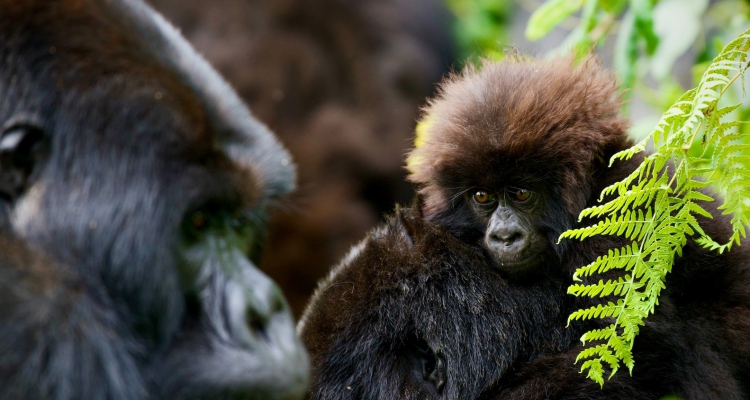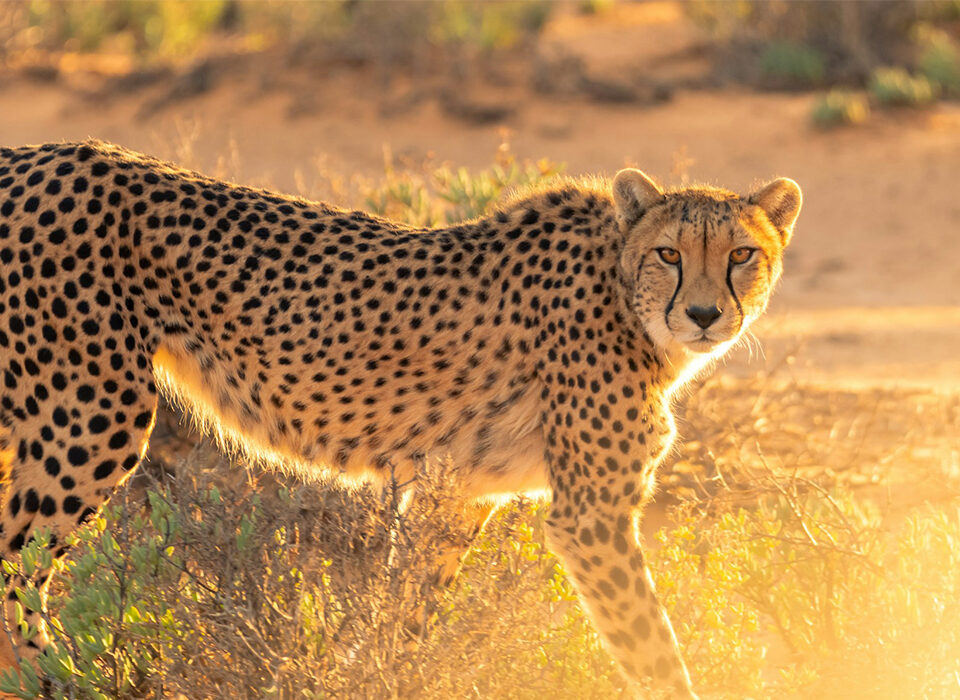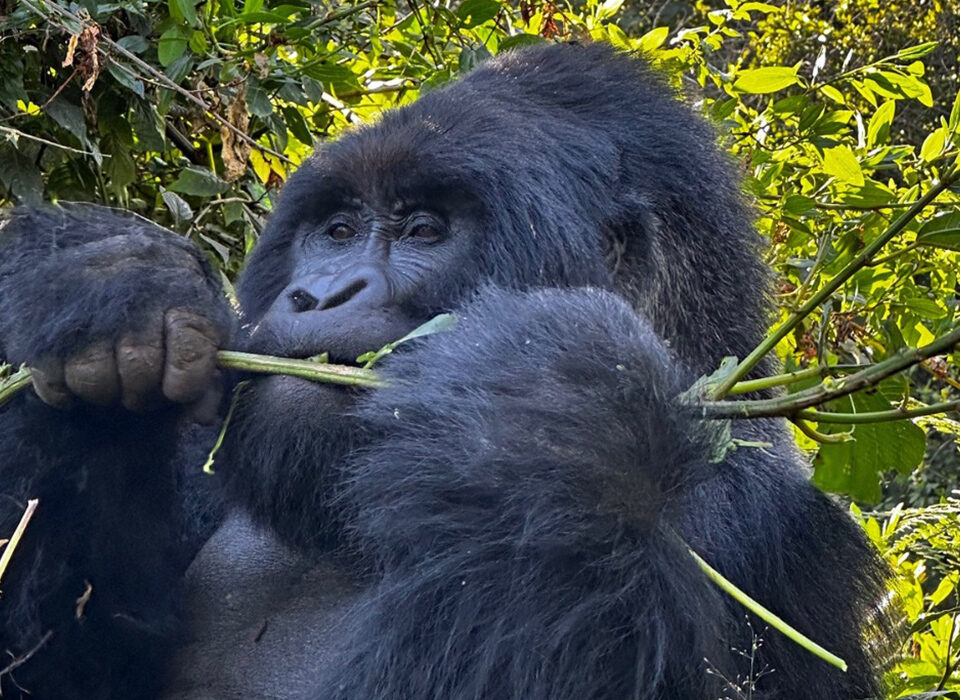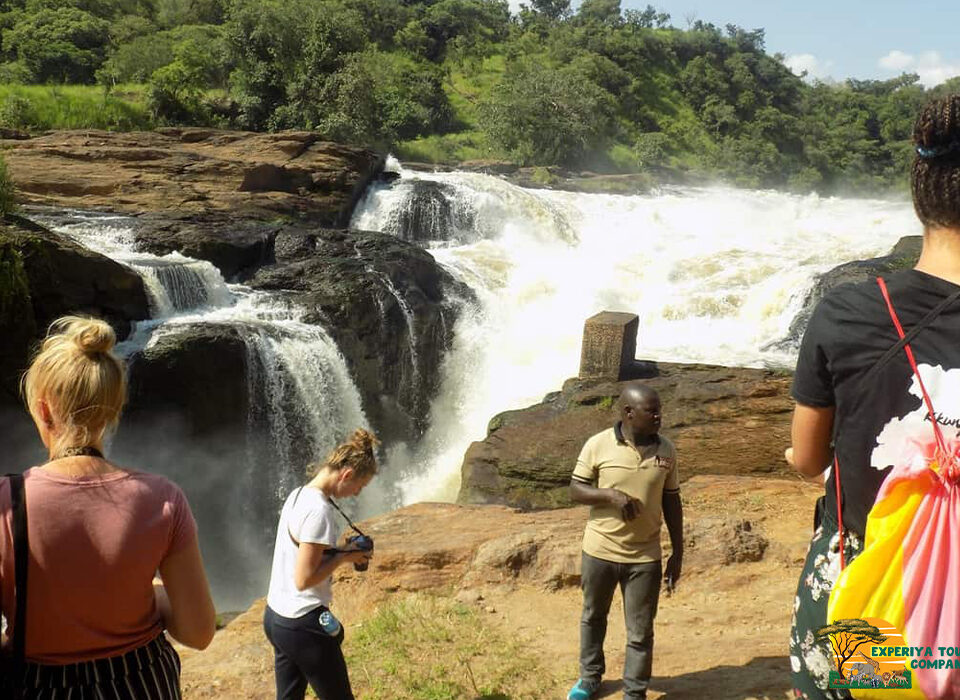
How long is a gorilla trek in Volcanoes National Park?
November 13, 2025
What are the rules for photographing gorillas?
November 13, 2025Can Children Trek Gorillas in Rwanda?
Gorilla trekking in Rwanda is one of the most extraordinary wildlife experiences on earth, drawing travellers from around the world to Volcanoes National Park to witness the majestic mountain gorillas in their natural habitat. Because the experience is so transformative, many families planning adventures in East Africa often wonder whether children are allowed to participate. The idea of introducing young explorers to the beauty of Rwanda’s mountains and the rare privilege of encountering gorillas is undeniably appealing. However, gorilla trekking is a highly regulated conservation activity, and age restrictions are firmly in place for several important reasons. Understanding these rules, the logic behind them, and the alternative options available for young travellers helps families plan a meaningful and enjoyable Rwanda safari.
Understanding the Age Limit for Gorilla Trekking in Rwanda
Rwanda has one of the strictest and most respected conservation policies in the world, particularly when it comes to mountain gorilla protection. According to Rwanda Development Board regulations, children under the age of 15 are not allowed to trek gorillas in Volcanoes National Park. This age limit is firm, and park authorities rarely make exceptions. It is a policy rooted in science, safety, and gorilla welfare, designed to protect both the endangered species and the visitors themselves.
Once a child turns 15, they are considered eligible for a gorilla trekking permit, just like adults. The same rules apply, including trekking briefings, the one-hour limit with the gorillas, and following all conservation protocols. Families travelling with teenagers often find the experience incredibly bonding and emotionally fulfilling, but for families with younger children, other options must be explored within Rwanda or across the border in Uganda, where regulations differ slightly.
Why Is the Age Limit Set at 15 Years?
The age limitation is not arbitrary; it is based on a combination of conservation ethics, visitor safety, and behavioural considerations. Mountain gorillas are highly sensitive primates, sharing about 98% of their DNA with humans. This close genetic relationship means they can easily contract human-borne diseases, making health precautions extremely important. Younger children are more susceptible to illnesses such as colds, flu, and respiratory infections, which could be transmitted to gorillas with devastating consequences.
Another key reason relates to behavioural predictability. Young children, especially those under 15, may struggle to remain still, quiet, or calm during close encounters with gorillas. While gorilla families are habituated to human presence, they are still wild animals, and sudden movements, loud voices, or unpredictable behaviour could trigger stress reactions or defensive responses from the gorillas. The safety of the visitor group depends on maintaining a calm environment, and older adolescents are considered better equipped to follow instructions.
Additionally, the physical nature of the trek itself must be taken into account. Gorilla trekking can involve steep climbs, thick vegetation, mud, altitude challenges, and several hours of walking. Children under 15 may struggle physically, and the presence of a younger child could slow the group or create complications on the trail. The age policy ensures that trekking groups move efficiently and safely together.
What Happens If a Child Is Almost 15?
Some families travel with children who are close to the age limit, perhaps 13 or 14 years old, and hope that park authorities might grant an exception. In Rwanda, exceptions are exceedingly rare. Even if a parent signs a waiver, even if the child is physically fit, and even if the child looks older than their age, the regulations remain unchanged. Age verification is required during the permitting process and again at the briefing point in Kinigi on the morning of the trek.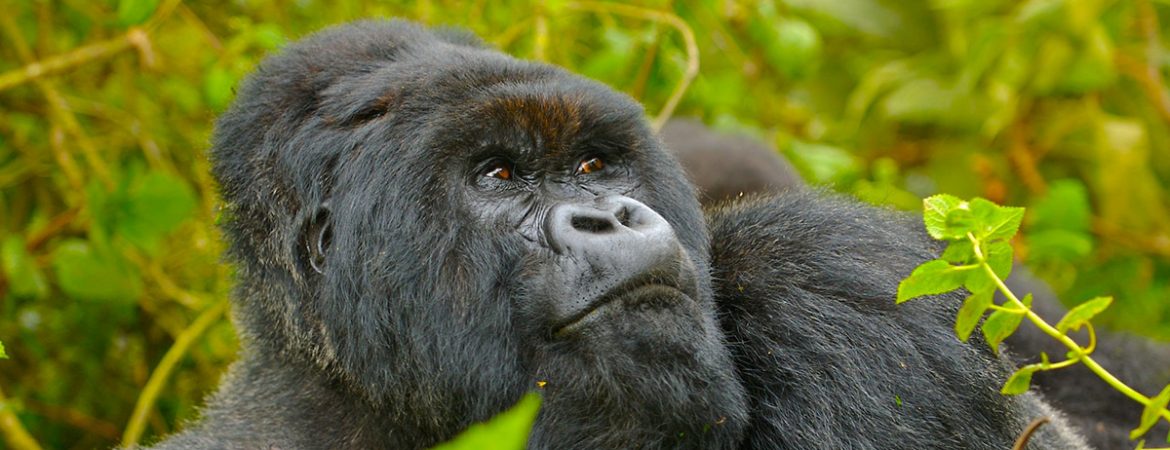
The strict enforcement ensures uniformity and avoids potential conflicts or accusations of inconsistency. For families whose children are nearing 15, it may be better to plan the trek for a future trip or consider alternative activities that still allow for a deeply meaningful introduction to Rwanda’s wildlife.
Alternatives for Children Under 15 in Rwanda
While younger children cannot participate in gorilla trekking, Rwanda offers several enriching alternatives that allow families to immerse themselves in nature, culture, and adventure without violating conservation rules. Families can still enjoy experiences that mirror the beauty and inspiration of gorilla trekking.
One of the most rewarding alternative activities is the Iby’Iwacu Cultural Village, located near Volcanoes National Park. This immersive cultural centre introduces children to Rwandan traditions, music, dance, storytelling, and traditional homes. Young travellers can meet former gorilla trackers, learn about conservation efforts, and gain a meaningful appreciation of the relationship between communities and wildlife.
Another excellent option is golden monkey trekking, also offered in Volcanoes National Park. Children aged 12 and above can participate in this activity, which provides a lighter, shorter, and more playful primate experience. Golden monkeys live in lively groups and are generally easier to reach, making the activity family-friendly for older but not yet gorilla-eligible children.
For families spending more days in Rwanda, activities such as canoeing on the Mukungwa River, hiking at Lake Burera and Lake Ruhondo, visiting the Kigali Genocide Memorial (recommended for older children), or exploring Kigali’s museums offer enriching and educational experiences without requiring strenuous trekking.
Can Children Trek Gorillas in Uganda Instead?
Some parents wonder whether they can take their younger children to Uganda instead, as Uganda’s regulations are sometimes perceived as less strict. However, Uganda Wildlife Authority also enforces a minimum age of 15 years for gorilla trekking in Bwindi Impenetrable National Park and Mgahinga Gorilla National Park. While Uganda is known for occasionally making exceptions, this happens in very rare and carefully assessed circumstances and cannot be relied upon.
Therefore, families travelling with children under 15 should view gorilla trekking as an experience to save for later while enjoying other inspiring activities in Rwanda or Uganda in the meantime. This ensures safety, respect for conservation protocols, and a more enjoyable experience for everyone involved.
Preparing Older Teens for Gorilla Trekking
If you are travelling with teenagers aged 15 and above, it is important to prepare them both physically and mentally. The trek can be challenging, and teens benefit from understanding what to expect. Encourage them to stay active before the trip, explain the importance of conservation rules, and teach them about gorilla behaviour and the significance of habituation.
Most teens find the experience awe-inspiring, often describing it as life-changing. Witnessing gorillas at close range can spark a lifelong love of conservation, sustainability, and wildlife protection. Families often bond deeper through the shared sense of accomplishment and the emotional weight of the encounter.
The Importance of Responsible Tourism
The age limitation also highlights Rwanda’s commitment to responsible tourism. Mountain gorillas are critically endangered, and their survival depends on strict regulations that limit human impact. The rules ensure that tourism benefits conservation rather than harming it. Trek fees directly support gorilla protection, anti-poaching patrols, ranger salaries, research initiatives, and local community projects.
Teaching children about responsible travel, even if they cannot trek, instills values of respect, environmental awareness, and compassion. Many families use the trip as an opportunity for their children to understand why preserving wildlife requires sacrifice and discipline.
Can Children Trek Gorillas in Rwanda?
The simple answer is no. Children under 15 cannot trek gorillas in Rwanda, and the rule is consistently enforced. This policy protects the health of gorillas, ensures visitor safety, and maintains the quality of Rwanda’s conservation framework. Families with younger children can still explore a wealth of activities around Volcanoes National Park, from cultural encounters to golden monkey trekking, nature walks, and lake adventures. Those with teenagers old enough to trek will find the experience immensely rewarding for the entire family.
If you are planning a gorilla trekking safari for your family or preparing a future journey when your children turn 15, consider booking your adventure with Experiya Tour Company. Their expert planning, family-friendly arrangements, and deep knowledge of Rwanda’s tourism landscape ensure a smooth, meaningful, and unforgettable journey.

